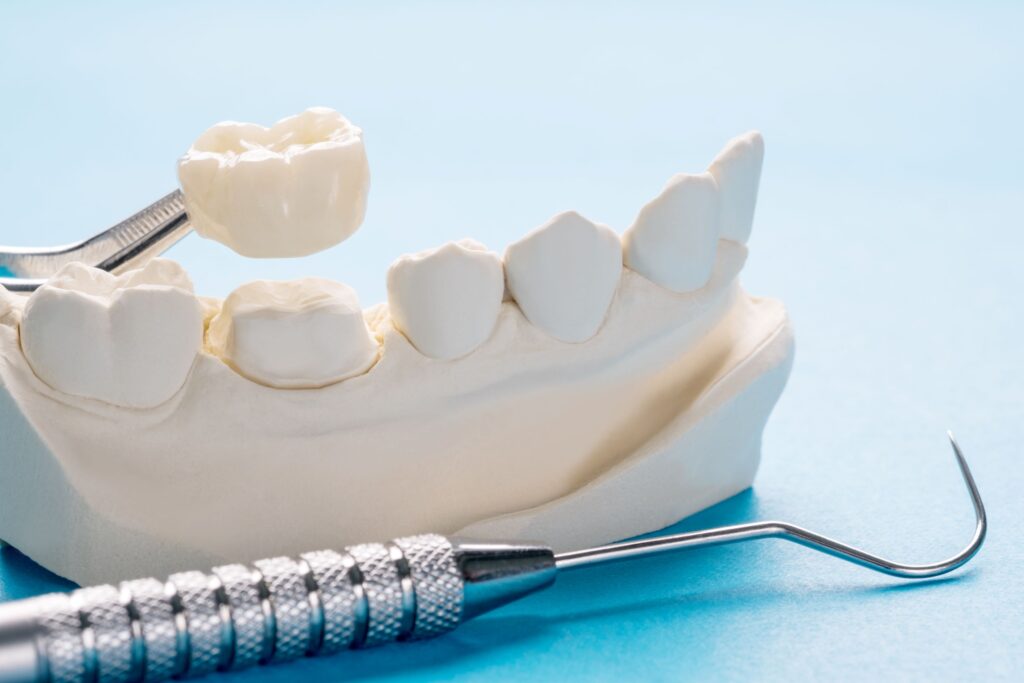Restoration Recovery: Do Dental Crowns Hurt?
September 18, 2024

Do you have a toothache or a severely damaged or decayed tooth? If so, there’s a good chance your dentist will provide a dental crown to preserve your smile’s appearance and restore its functionality once they’ve treated your troublesome tooth.
Although these prosthetics are incredibly beneficial, many patients hesitate to approve the procedure because they’re worried it will be agonizingly long and painful. Thankfully, that’s typically not the case for most people! If you’re feeling anxious, continue reading to learn more about what to expect when healing from dental crown placement so you can set your concerns aside.
Is Dental Crown Placement Painful?
Before your prosthetic can be fitted, your dentist must prepare your tooth by gently removing a small amount of enamel. This preparatory step ensures that your restoration will fit correctly and won’t appear overly bulky. It’s natural to worry that thinning your enamel might cause some discomfort, but your dentist will apply a local anesthetic before starting the process to reduce the sensation in the area.
As a result, you’re not likely to feel any pain during the procedure itself, but it’s normal to experience mildly adverse effects as the medication wears off afterward.
Does Dental Crown Recovery Hurt?
If you’re concerned that you’ll have to take weeks off of work to heal after getting a dental crown, you’re in luck! While it’s natural to have some aches and inflammation, these symptoms are typically mild to moderate and resolve themselves after a few days. That said, some people experience extra sensitivity for a couple of weeks after their appointment.
It’s usually perfectly safe to address sore teeth and gums with over-the-counter medications like Tylenol or ibuprofen. If your gums are irritated by the dental cement used to bond your crown in place, you can try applying a topical oral numbing gel to assuage the inflamed tissues.
How Can I Prevent Dental Crown Discomfort?
Fortunately, there are several things you can do to ensure that you heal as quickly as possible without developing adverse side effects, including:
- Watch what you eat. Avoid overly hard or sticky foods that could chip your prosthetic or yank it out of place.
- Chew conscientiously. Try to grind your meals using the teeth on the opposite side of your mouth from your new restoration.
- Floss carefully. Keeping your mouth clean can prevent an infection, but lifting your floss vertically can dislodge your crown. Try not to floss next to it for a few days, or be careful to slide the string away rather than pull it upwards if you do.
Now that you know more about recovering from dental crown placement, you can see there’s no need to feel alarmed!
About the Author
Dr. Bob Koenitzer has been voted the Best Dentist in Petaluma for six years in a row and is committed to providing a wide array of services to meet all your dental needs. He earned his dental degree from the University of California at San Francisco, where he received several awards for clinical excellence. Now, he takes the time to get to know your unique needs and goals so he can tailor treatment plans to meet them. If you’re worried about an injured tooth that needs protection, you can request a dental crown consultation on the website or call (707) 766-6666.
No Comments
No comments yet.
RSS feed for comments on this post.
Sorry, the comment form is closed at this time.